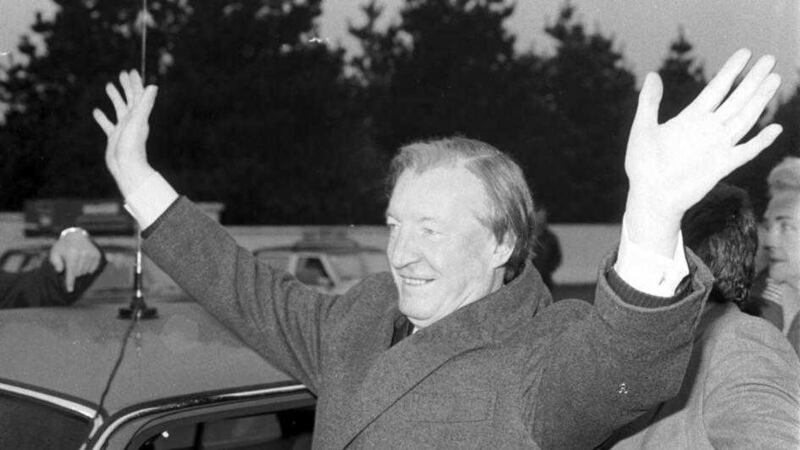If de Valera's constitution recognised the "special position" of the Catholic Church, it is fair to say that more recent Irish governments have conferred a similar status on Apple and other multi-national corporations.
The European Commission's ruling that Ireland must collect £11 billion (plus interest) of unpaid taxes from Apple suggests that the island of saints and scholars has switched from Catholicism to corporatism.
As the Irish economy relies increasingly on attracting inward investment through low tax, it is difficult to avoid the observation that unlimited profit for foreign companies has become our new religion and corporate greed is Ireland's new God.
While the country struggles to recover from its biggest economic collapse since the Famine, this new faith teaches that limiting profit for multinationals is a sin. (``Bless me, Enda Kenny for I have sinned. I had a bad thought recently. For a few moments, I thought that Apple should pay more than 0.005 per cent tax on their profits." "For your penance, my child, buy yourself an iPad.")
So how did Ireland adopt this new set of values? What impact have they had on society and what will be the political consequences of the government's decision to appeal against a financial windfall?
Oddly, the equivalent of St Patrick in bringing this new faith to Ireland was de Valera himself - although he may not have appreciated what he was doing. In 1957, as 60,000 people emigrated and the IRA launched its border campaign (the IRA never bothered with social and economic policy) de Valera's government abandoned economic nationalism in favour of attracting foreign investment.
The 1916 ideal of the ownership of Ireland for the people of Ireland was replaced with what became the famous 1958 plan, Economic Development. Ireland was open for business - any business. By 1980, Taoiseach Charles Haughey had brought Apple to Ireland, while claiming that the country was living beyond its means.
In 1991 when Mr Haughey was again Taoiseach and the first doubts were emerging about the Church, the Irish government agreed to tax only certain brackets of Apple's earnings. This arrangement ultimately led to the company paying practically zero tax in Ireland. It was the beginning of the booming Celtic Tiger, but when bust came, many wondered why the state had such limited financial reserves.
The upside of Apple's preferential treatment was 6,000 jobs in Cork. For the workers and their families, anything which the government did to win those jobs was probably justified. That view is understandable. Others argue that the government's deal with Apple was simply good business. Ireland kept jobs which would otherwise have gone elsewhere.
But the morality of the deal was shameful. It helped a huge company rake in billions, while hard-pressed families lived on restricted earnings and watched public services decline. There are currently about 6,000 homeless people in Ireland. Nearly three quarters of a million people live in poverty. Almost one in five children live in households which are in poverty.
Meanwhile, Apple has about £165 billion in reserves, which is about twice the international reserves of the US government. That money will simply make rich people richer. While the company enjoyed the benefits of an educated workforce, along with the use of roads, airports, and telecommunications, it does not appear to have realised that it had an obligation to pay its fair share for state services. That apparently was the responsibility of ordinary taxpayers.
In that context successive Irish governments no longer governed. They were merely agents for multinationals, rendering elections (and maybe even democracy) irrelevant. Despite their reputation for rebellion, the Irish have a wonderful history of willingly being exploited by others.
Michael Noonan, hitherto regarded by many as the minister for austerity, has announced that the government will appeal being awarded £11 billion, which could rise to £14 billion with interest. Politically his decision will make the fragile coalition government even more fragile.
Whether that will trigger an early election remains to be seen. However, with Fianna Fáil supporting the government's decision to appeal the EU ruling, Sinn Féin and the smaller parties should be in a strong position to win additional seats, no matter when the election is held.
But first they will have to challenge Ireland's new religion. As austerity continues to bite, that may not be too difficult. The Apple revelations may prompt a fairer Ireland. What was a Garden of Eden for some foreign companies may now be at an end. Not for the first time, the temptation offered by an apple may have far reaching consequences.









